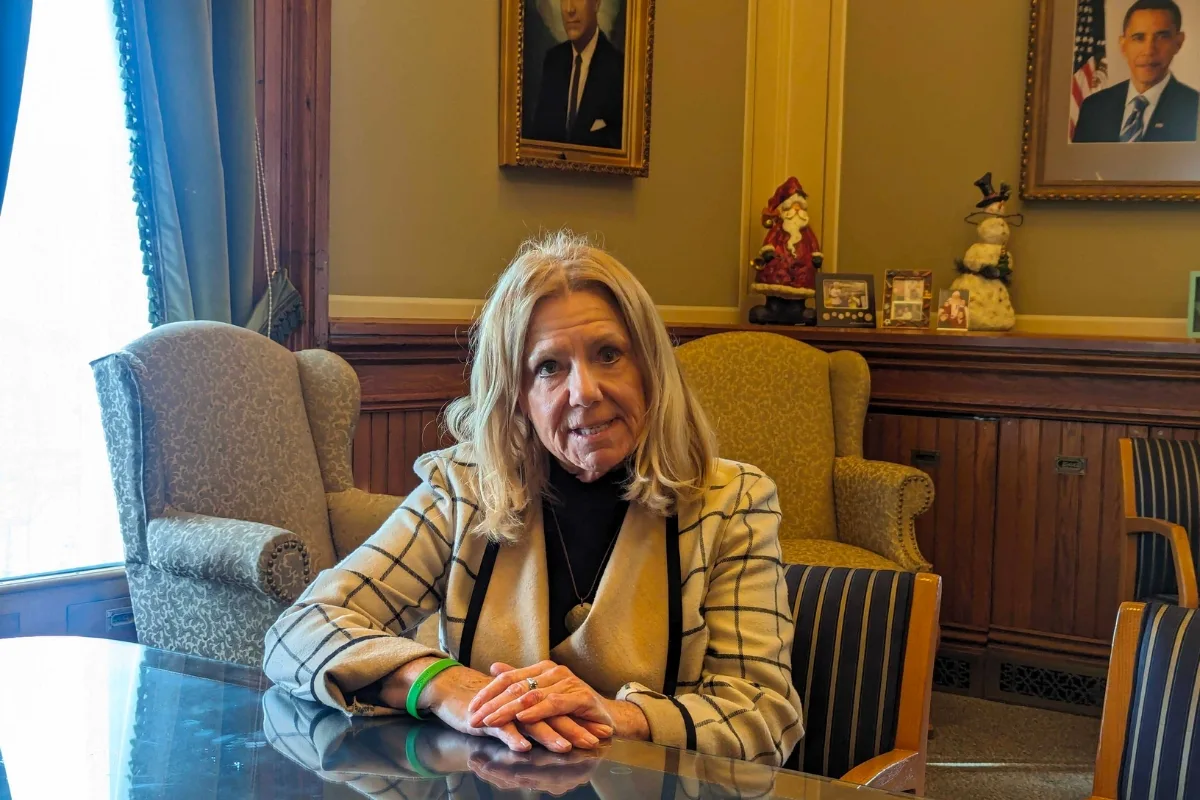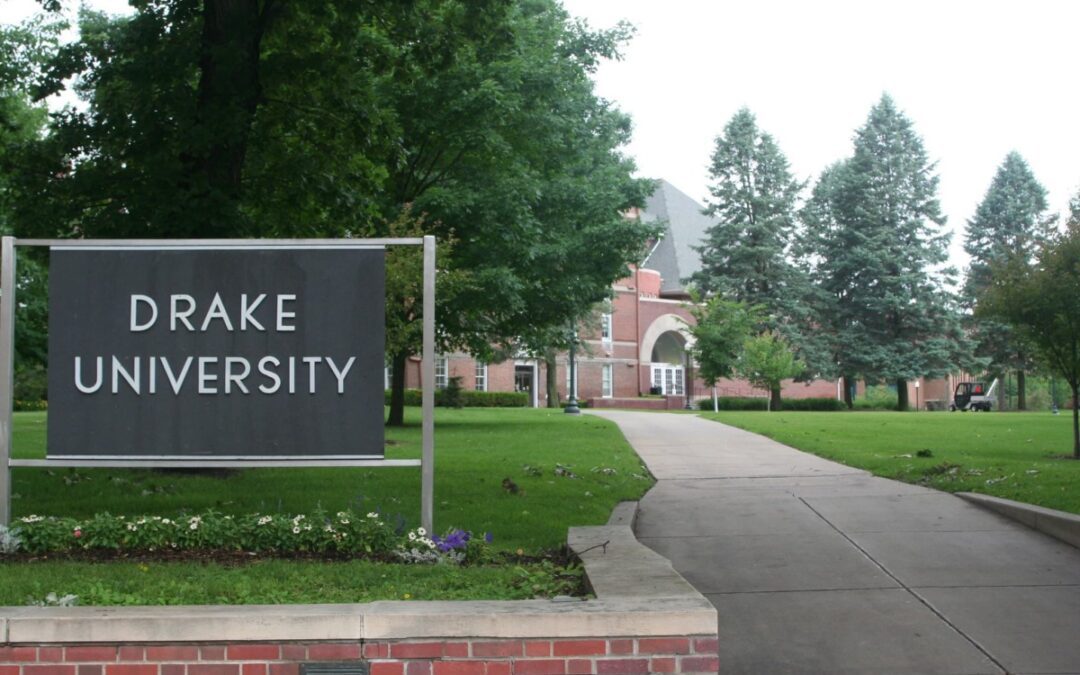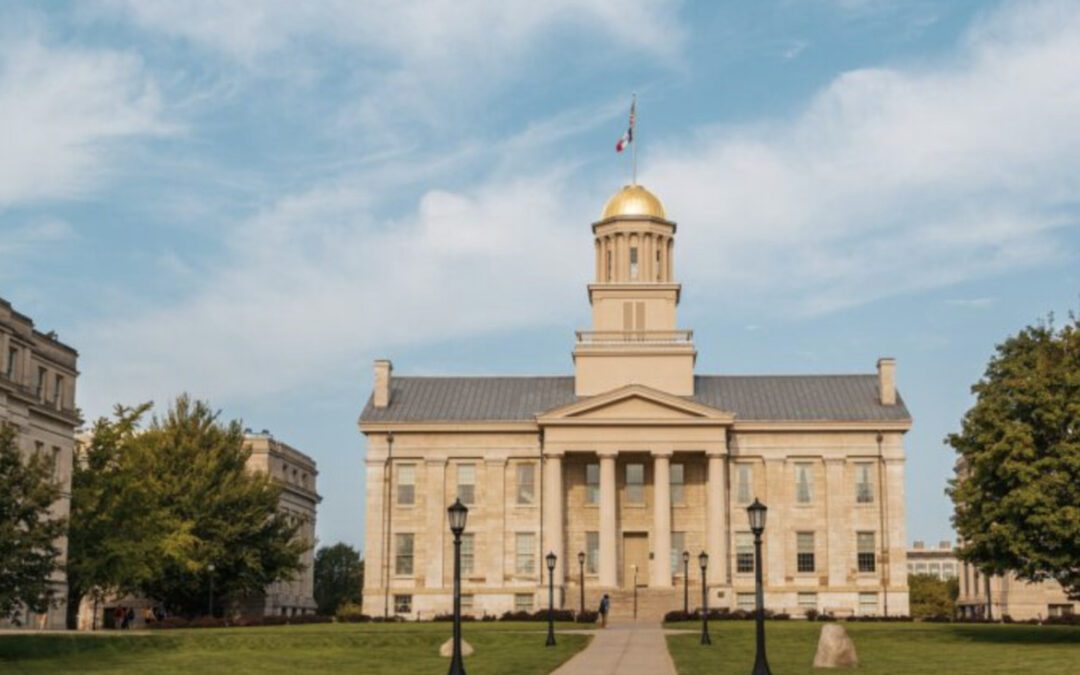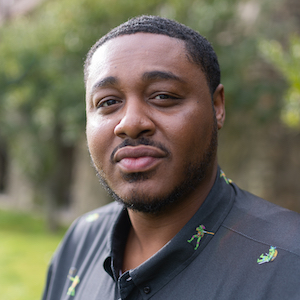
Iowa Senate Minority Leader Pam Jochum (D-Dubuque) in her office. Photo by Ty Rushing/Starting Line
Iowa Senate Minority Leader Pam Jochum (D-Dubuque) fears Iowa Republicans are ramping up efforts to privatize education in a state that was once said to have the best public schools in the country.
“I honestly hope I’m wrong, but this is how I see this playing out,” she said.
The 2024 legislative session began Monday and marks the eighth consecutive year Republicans have controlled the Iowa Senate, Iowa House, and governor’s mansion.
Gov. Kim Reynolds used her 2024 Condition of the State address to announce additional proposals to alter longtime practices in how Iowa public schools have operated.
With that in mind, Jochum knows her work is cut out for her.
The veteran Democratic lawmaker took over leadership of the Senate Democrats in June. She spent the last few months traveling around Iowa to find out what Iowans want to see from their state government.
“I’ve driven about 16,000 miles in the last few months,” Jochum said. “We’ve held listening posts in little towns across Iowa and, of course, the suburbs as well. We’ve done labor roundtables.
“In all of those places, it’s been pretty consistent they want to make sure public education is well financed,” she continued. “They have a lot of deep concerns about the new voucher law and impact it’s going to have on their public school system.”
Last year, Iowa Republicans pushed through Reynolds’ voucher proposal to divert hundreds of millions in public dollars to private school tuition. As of August, taxpayers are spending about $142 million on the proposal in the 2023-24 school year and the program is still two years away from being fully implemented.
Reynolds proposed further changes to the state’s education system on Tuesday, including a plan to reshape Iowa’s Area Education Agencies (AEAs). These were formed in the 1970s to provide educational equity throughout Iowa via nine regional service providers.
Reynolds wants to give school districts direct control over special education funds instead of having them pool their money to support a regional AEA. Districts could then use those dollars to partner with a different AEA region or private contractor instead.
The governor’s plan would also limit AEAs to only working with students who have special needs, and take away their independent oversight and place them under the direction of the Iowa Department of Education.
Jochum said this adds “a whole new level of anxiety” for people worried about public education in Iowa.
She also noted the value of Iowa AEAs and shared a story about her late daughter, Sarah, who was born with a severe intellectual disability. Sarah utilized AEA services from her birth until she turned 21.
“AEA services came into our home and then worked with me as a new mom to help my daughter get caught up on different things because there were things I had to do that no other parent had to do to help her learn how to walk, to make sure that she was moving her tongue around a certain way to strengthen her muscles in her mouth so that she could speak,” Jochum said.
Jochum remains eternally grateful for the AEA and the parents who came before her who helped to push the agency to provide the kind of services it does for Iowa kids and families.
“I have deep concerns about what the governor is trying to do,” she said.
One of Jochum’s larger fears is that this is a further step toward the privatization of education in Iowa. Jochum said this reminds her of measures made under the administrations of Reynolds and former Gov. Terry Branstad to privatize Medicaid a few years ago.
“Here we are seven years later with promises that it was going to save money, improve health outcomes, and expand services at the local level,” Johcum said. “The answer to all three of those promises are, ‘It didn’t happen, it didn’t happen, it didn’t happen.’ So here we are now trying to do the same type of thing with the public school system.”
Jochum said this proposal could also indirectly harm rural school districts if larger school districts pull out of regional AEAs and take their dollars with them.
“It hurts the rural areas tremendously,” she said. “Then you look at the rural areas and you say, ‘Do they have speech pathologists in the rural areas? Do they have an [occupational therapists] in that rural area? Do they have a physical therapist in that rural area?’
“And the answer is ‘no,’ they do not. And that’s why we created the AEAs so that you can have all those specialized professionals in a region under an AEA system—under that AEA umbrella—to provide those services. So I have serious concerns about where this is headed for the whole state.”

Find your passion at Drake University summer camps
Discover your passion at Drake University's 2025 summer camps! From voice training to business innovation, find the perfect program for high...

University of Iowa ranks high in US News grad school rankings
The University of Iowa boasts 52 programs recognized by US News for excellence, with rankings in the top five, highlighting its diverse academic...

Why the floodgates are open to help the wealthiest Iowans pay for their private education
Iowa Republican lawmakers have passed a bill to boost K-12 education funding by 2%—not nearly enough to keep pace with what’s needed for a...

Inside University of Iowa’s Fulbright program: A legacy of excellence
University of Iowa shines as a Fulbright Top Producer, sending students and alumni worldwide to teach, research, and build international...

Op-ed: On Governor’s Voucher Law, Some Claims About Accountability Don’t Add Up
Recently, an argument has been going around that goes like this: private schools are accredited to teach students, therefore they’re accountable to...

Guest post: If we want to fix education, fully fund public schools
It hasn’t been good news for Iowa’s public schools recently. The Waterloo Community School District announced budget cuts of over $10 million for...





